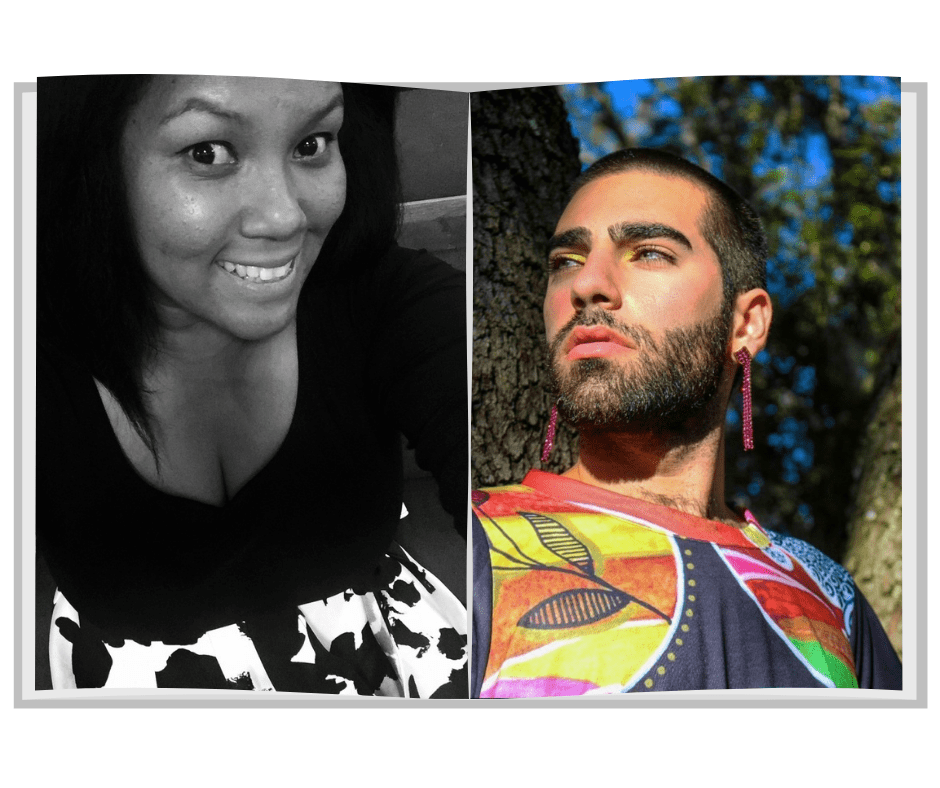- College of Medicine Student Affairs Students

Nader Tabsh credits Lady Gaga with helping him accept his homosexuality as a Muslim teenager growing up in the United Arab Emirates. Her song, Born This Way, brought comfort to a young man who had often prayed to Allah to “take this thing away from me.”
Tabsh, a first-year medical student, shared his story Jan. 26 as part of the College of Medicine’s Human Library Project Series. The event, launched by the Harriet F. Ginsburg Health Sciences Library and the Office of Diversity and Inclusion, asks faculty, staff and students to share their personal stories with the aim of challenging societal stigmas and stereotypes. The goal is to help the medical school community become more inclusive by learning from each other.
Tabsh discussed his journey of identity and acceptance, first as a gay man in a Muslim country, and then as a Muslim man in the United States.
“Lady Gaga’s song Born this Way was the first time I had the explicit celebration of diverse identities specifically with sexuality and gender,” he said. “And that’s when I realized there’s a massive cognitive dissonance in the view of sexuality and homosexuality and where I live and abroad. And so that started my little internet sleuth phase, where I would spend a lot of time on the computer researching different cultures and what was homosexuality like there.”
In his late teens, Tabsh moved with his mother to Florida where he studied at the University of South Florida before joining the UCF College of Medicine last August. While in Tampa, he led an art therapy program at the Tampa Museum of Art called “Connections.” The program worked to improve mental health by exposing Alzheimer’s and dementia patients to artwork and asking them for interpretations. Patients who participated in his program became more articulate, motivated and attentive, according to caregivers. Tabsh said leading the effort brought together his passion for art, people and medicine.
But while he felt his sexuality was more accepted in the U.S., he said he felt a different kind of discrimination.
“It wasn’t based off of my looks,” Tabsh said. “It was when I opened my mouth and they realized I had an accent and that was from somewhere else. Then all of a sudden I would be the target of that sort of discrimination.”
Tabsh’s work with mental health patients has inspired him to pursue psychiatry after medical school. He is also dedicated to reducing the discrimination that LGBTQ+ people face in the healthcare system and in medical education.
Also sharing her story was Laura Patterson, an administrator in the Graduate Medical Education department, who spoke of growing up in a multiracial and multicultural home.
Patterson’s father, an African-American serving in the U.S. Army, was stationed in Vietnam when he met her Vietnamese mother. Following the war, he offered her a chance for a new life in the U.S. and she took it, leaving behind her family for a dream of a better life.
“Growing up multiracial, I learned that we are not limited by the boundaries of our skin color but in actuality we are set free,” said Patterson who recounts surprising a lot of people as “a cocoa-skinned, curly haired girl speaking Vietnamese.”
“When people are not sure who you are and cannot define you or put you in a check box, then and only then, are they determined to get to know you for the person that you really are,” she said after her presentation.
Patterson lost both parents by the time she turned 20. Her mother lost her battle with ovarian cancer two weeks before Patterson’s high school graduation. Her father died two years later from pancreatitis.
“So, I feel like I raised myself a little bit. It’s been just me and my son, from that point on, and we kind of taught one another and learned from one another,” she said.
Patterson shared that one of her life goals is to embody the characteristics of The Good Doctor. At each year’s White Coat Ceremony for new students, medical school Dean Dr. Deborah German asks students to imagine the person they love most is ill and asks them what traits they would want the doctor caring for their loved one to have. She writes those traits on a blackboard, that is then displayed year-round in the medical school lobby. Traits include words such as compassion, integrity, honesty and hopefulness.
“I’m not a medical student, but those are the kind of characteristics we should all be striving to embody,” Patterson said. “And so whenever I walk pass that blackboard, it reminds me that these are the qualities that I am striving to be. At the end of the day, no matter how many awards, accolades or accomplishments I achieve, I want to be the kind of person that is proud to look in the mirror and see those traits reflected.”
Human Library Project events happen quarterly. The library website contains summaries of each participant’s story here. Those who want to learn more can contact the library to schedule a conversation with the presenter.
If you have a story to share and want to be a part of the COM Human Library Project, contact the library at HumanLibraryProject@ucf.edu.